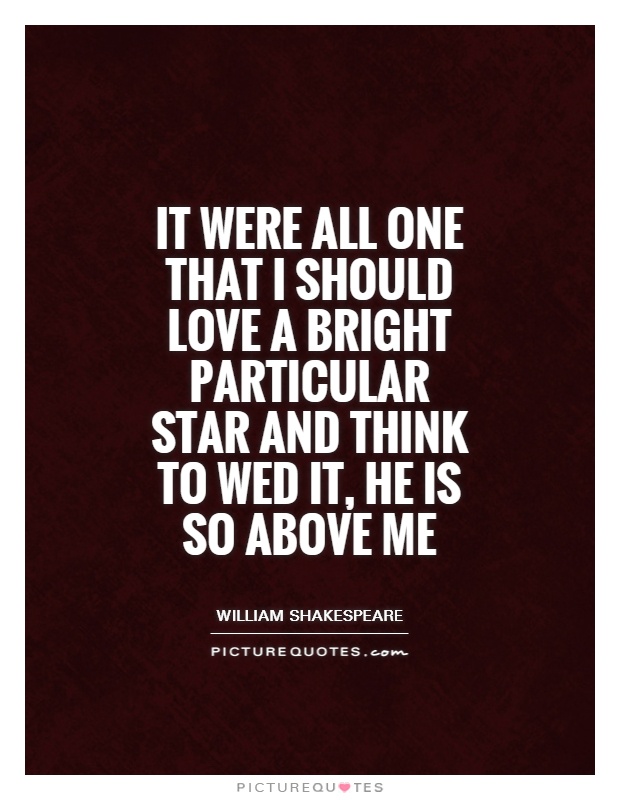It were all one That I should love a bright particular star and think to wed it, he is so above me

It were all one That I should love a bright particular star and think to wed it, he is so above me
The quote “It were all one That I should love a bright particular star and think to wed it, he is so above me” is from William Shakespeare’s play, All’s Well That Ends Well. In this line, the character Helena expresses her feelings of inadequacy and unworthiness in comparison to the object of her affection, Bertram.Helena is a young woman of low social status who falls in love with Bertram, a nobleman far above her station. She acknowledges the vast difference in their social standing and believes that it would be as impossible for her to marry him as it would be to wed a star. The metaphor of a “bright particular star” emphasizes Bertram’s brilliance and unattainability in Helena’s eyes.
This quote reflects the theme of social class and the barriers it creates in relationships. In Shakespeare’s time, social hierarchy was rigidly enforced, and marriages were often arranged for political or financial gain rather than love. Helena’s love for Bertram challenges these societal norms and raises questions about the nature of love and desire.
Despite her feelings of inferiority, Helena is determined to win Bertram’s love and prove herself worthy of him. She uses her intelligence and resourcefulness to overcome obstacles and ultimately succeeds in winning his heart. This demonstrates Shakespeare’s belief in the power of love to transcend social barriers and unite people from different backgrounds.
The quote also highlights Helena’s courage and determination in pursuing her desires, even in the face of seemingly insurmountable odds. Her willingness to defy convention and follow her heart makes her a compelling and sympathetic character.
Overall, this quote from All’s Well That Ends Well captures the complexities of love and social class in Shakespeare’s work. It reflects the universal themes of love, ambition, and self-worth that continue to resonate with audiences today.












 Friendship Quotes
Friendship Quotes Love Quotes
Love Quotes Life Quotes
Life Quotes Funny Quotes
Funny Quotes Motivational Quotes
Motivational Quotes Inspirational Quotes
Inspirational Quotes